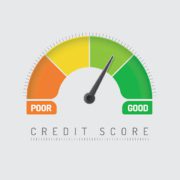Mortgage Insurance vs Homeowners Insurance: What You Need to Know
It’s important to grasp the distinctions between mortgage insurance and homeowners insurance when looking to protect your house and finances.
Mortgage insurance covers your lender if you default on your mortgage. On the other hand, homeowners insurance covers your property, belongings, and even certain liability claims.
As a first-time homebuyer, grasping these distinctions between mortgage insurance vs. homeowners insurance will help you confidently navigate the insurance landscape.
What is Mortgage Insurance?
Mortgage insurance, also called private mortgage insurance (PMI), provides financial protection to lenders in case the borrower fails to make their monthly payments. This policy is typically required when homebuyers cannot afford a 20% down payment on their house.
The cost associated with this form of protection leads to higher monthly mortgage payments for homeowners. However, it opens doors for those who cannot put down large upfront amounts and helps them become homeowners sooner rather than later.
What is Homeowners Insurance?
Homeowners’ insurance safeguards homeowners against potential risks. It is an essential coverage that financially protects you against various threats and unforeseen circumstances.
The main objective of homeowners insurance is to safeguard your residence and belongings inside it from unexpected occurrences, such as destruction caused by fire or theft.
Beyond just covering physical damages or losses due to hazards like fires or storms, these policies also offer additional living expenses coverage, which can be beneficial if you are temporarily unable to live in your insured residence because of covered incidents. This could mean hotel bills during repairs following extensive water damage caused by burst pipes – one less thing for stressed-out homeowners dealing with disaster aftermaths.
What Does Mortgage Insurance Cover?
Mortgage insurance doesn’t cover the homeowner directly. Instead, it protects the lender if the borrower cannot meet their mortgage obligations. If a borrower stops making payments and the lender has to initiate foreclosure proceedings, the mortgage insurance kicks in to help cover the outstanding balance on the loan.
Mortgage insurance typically does not cover other financial aspects related to homeownership. It doesn’t protect the borrower’s investment in the property, personal belongings, or liability in case of accidents or injuries on the property.
What Does Homeowners Insurance Cover?
Homeowners’ insurance varies from policy to policy. Some aspects that are typically covered under homeowners insurance may include:
- Dwelling Coverage: Repairs or rebuilds your home from damage by events like fire, storms, or vandalism.
- Other Structures: Covers detached structures like garages and fences.
- Personal Property: Replaces belongings (furniture, electronics) if damaged or stolen.
- Liability: Covers legal costs if someone’s injured on your property.
- Medical Payments: Covers guests’ minor injury medical expenses.
- Additional Living Expenses: Pays for temporary housing if your home is uninhabitable.
- Natural Disasters: Events like fire, windstorms, hail, etc. Some natural disasters, such as floods or earthquakes, may require alternative insurance.
Have Questions About Mortgage Insurance?
If you still have questions about mortgage insurance vs. homeowners insurance, reach out to us at Michigan Mortgage! Our mortgage experts are here to lend a hand for all of your mortgage needs and inquiries.











